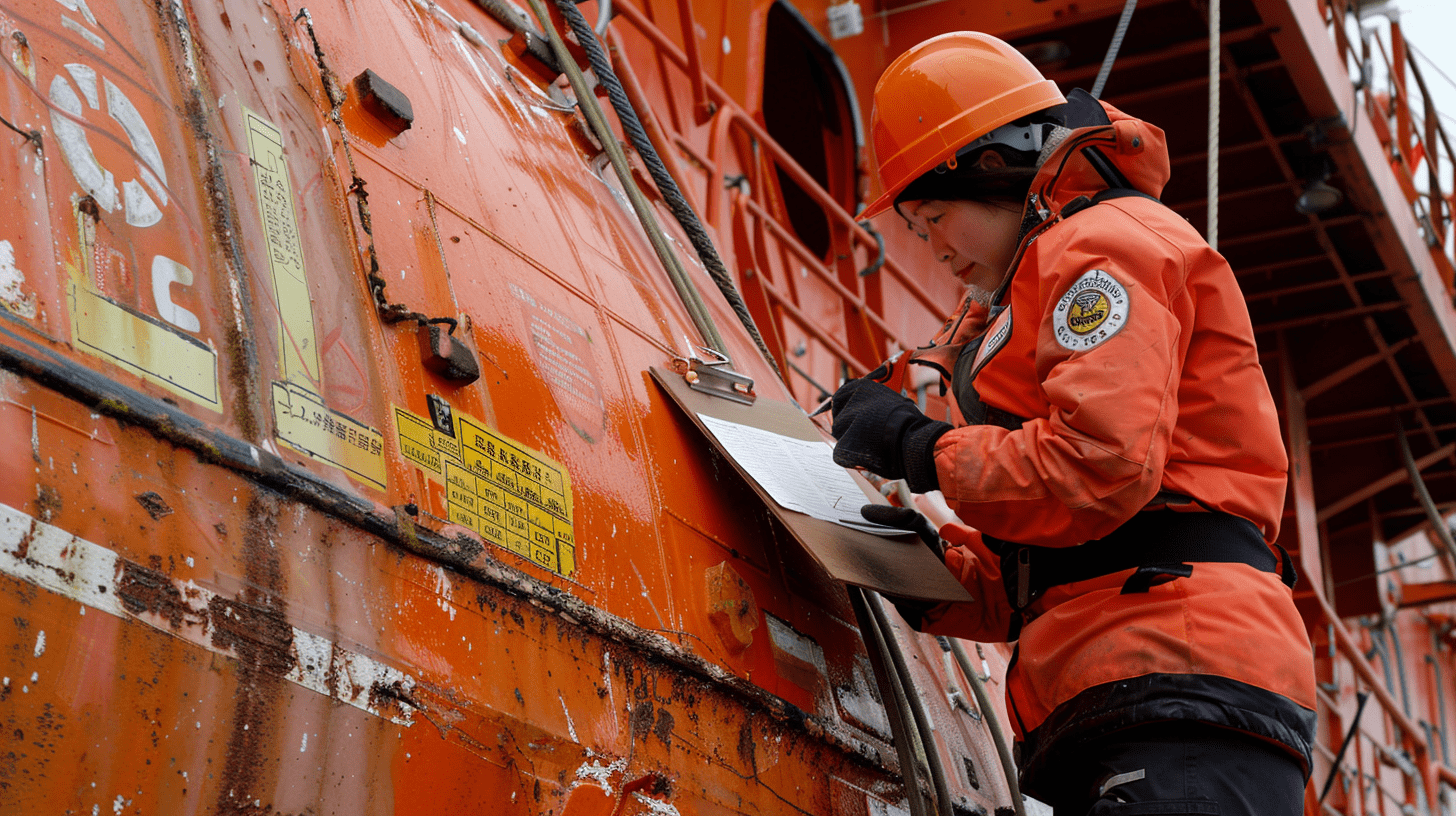Ensuring your vessel meets SOLAS regulations is a top priority, but have you considered how maintenance practices play an essential role in compliance? From routine checks to timely repairs, the link between maintenance and safety standards is undeniable. But there’s more to investigate beyond just meeting the basic requirements. Let’s explore deeper into how proactive maintenance can not only keep you compliant but also elevate the safety standards onboard.
Importance of Maintenance in SOLAS Compliance
Maintenance plays an essential role in guaranteeing compliance with the Safety of Life at Sea (SOLAS) regulations. To maintain SOLAS compliance, staying up-to-date with regulatory updates is vital.
Regular maintenance schedules are necessary to ascertain that all safety-related equipment and systems on board are functioning correctly and are in line with the latest regulations. By adhering to strict maintenance schedules, you can prevent breakdowns or failures that could lead to non-compliance with SOLAS requirements.
When conducting maintenance tasks, it’s important to follow manufacturer guidelines and industry best practices to assure the effectiveness and reliability of the equipment.
Any changes in regulations must be promptly integrated into the vessel’s maintenance plans to guarantee continuous compliance with SOLAS standards. Regular audits can help identify areas that require attention and adjustments in the maintenance schedule to meet evolving regulatory requirements.
Key Components of Vessel Maintenance
One vital aspect of guaranteeing the smooth operation and regulatory compliance of vessels is the meticulous attention given to the maintenance of key components onboard.
To maintain equipment longevity and uphold SOLAS standards, preventive strategies are essential. Regular inspections and maintenance of key components such as propulsion systems, steering gear, and fire detection systems are fundamental.
Propulsion systems, including engines and propellers, should be routinely serviced to prevent unexpected failures that could lead to costly downtime.
Steering gear must be checked for proper functionality to ascertain the vessel can navigate safely.
Fire detection systems need to be inspected and tested regularly to assure they function correctly in the event of a fire emergency.
Impact of Timely Repairs on Safety
Regular and timely repairs play an essential role in guaranteeing the safety and operational efficiency of vessels. The frequency of repairs directly impacts the overall safety of the vessel. By conducting frequent safety inspections and promptly addressing any identified issues, you can mitigate potential risks and guarantee compliance with safety regulations.
Timely repairs not only prevent minor issues from escalating into major problems but also contribute to the longevity of the vessel.
Safety inspections should be conducted regularly to assess the condition of critical components and systems. Any deficiencies or damages should be repaired promptly to maintain the structural integrity and functionality of the vessel.
Neglecting repairs can compromise the safety of the crew, passengers, and the environment. Consequently, a proactive approach to maintenance, including timely repairs based on inspection findings, is vital for upholding safety standards and guaranteeing the smooth operation of the vessel.
Integrating SOLAS Regulations Into Maintenance Practices
Periodically reviewing and incorporating SOLAS regulations into your maintenance practices is essential for ensuring compliance with international safety standards.
Staying informed about regulatory updates is vital as these regulations evolve to address emerging safety concerns.
To effectively integrate SOLAS regulations into your maintenance procedures, consider implementing specialized training programs for your maintenance staff.
These programs can provide in-depth knowledge of the specific requirements outlined in SOLAS, ensuring that maintenance activities are carried out in accordance with these regulations.
Proactive Maintenance for Enhanced Safety
To guarantee ideal safety standards and operational efficiency, implementing proactive maintenance strategies is essential.
By focusing on preventive strategies and fostering a strong safety culture, you can greatly enhance the safety of your maritime operations.
Here are three key points to take into account:
- Regular Inspections: Conducting routine inspections allows you to identify potential issues early on, preventing them from escalating into safety hazards.
- Scheduled Maintenance: Developing a proactive maintenance schedule guarantees that all critical components are regularly checked and serviced, reducing the risk of unexpected failures.
- Training and Awareness: Promoting a safety culture among your crew members through training and awareness programs can help instill a proactive mindset towards maintenance and safety protocols.
Frequently Asked Questions
How Often Should Maintenance Inspections Be Conducted on Vessels?
You should conduct regular vessel maintenance inspections to guarantee safety and compliance. Consider factors like vessel type, operational conditions, and manufacturer recommendations. Typically, inspections should occur quarterly or biannually for peak performance and safety.
What Are the Consequences of Non-Compliance With SOLAS Regulations?
If you fail to comply with SOLAS regulations, penalties and legal implications may arise. Risks include vessel detentions, fines, and reputational damage. Guarantee adherence to avoid consequences that could impact safety and operational continuity.
Are There Specific Training Requirements for Maintenance Personnel?
To guarantee compliance, training standards dictate that maintenance personnel must possess specific qualifications. These requirements aim to enhance safety protocols and operational efficiency. It is essential to adhere to these guidelines to uphold regulatory standards effectively.
How Can Digital Tools Enhance Maintenance Efficiency for SOLAS Compliance?
You can enhance maintenance efficiency for SOLAS compliance by utilizing digital tools like digital tracking systems and predictive maintenance software. These tools streamline processes, provide real-time data, and enable proactive maintenance approaches, ensuring compliance and safety.
Is There a Checklist Available for Tracking Maintenance Tasks for SOLAS?
To track maintenance tasks for SOLAS compliance, utilize a digital maintenance checklist. It guarantees regulatory updates are followed accurately. This checklist streamlines monitoring essential tasks, aiding in overall compliance adherence and efficient maintenance management.





